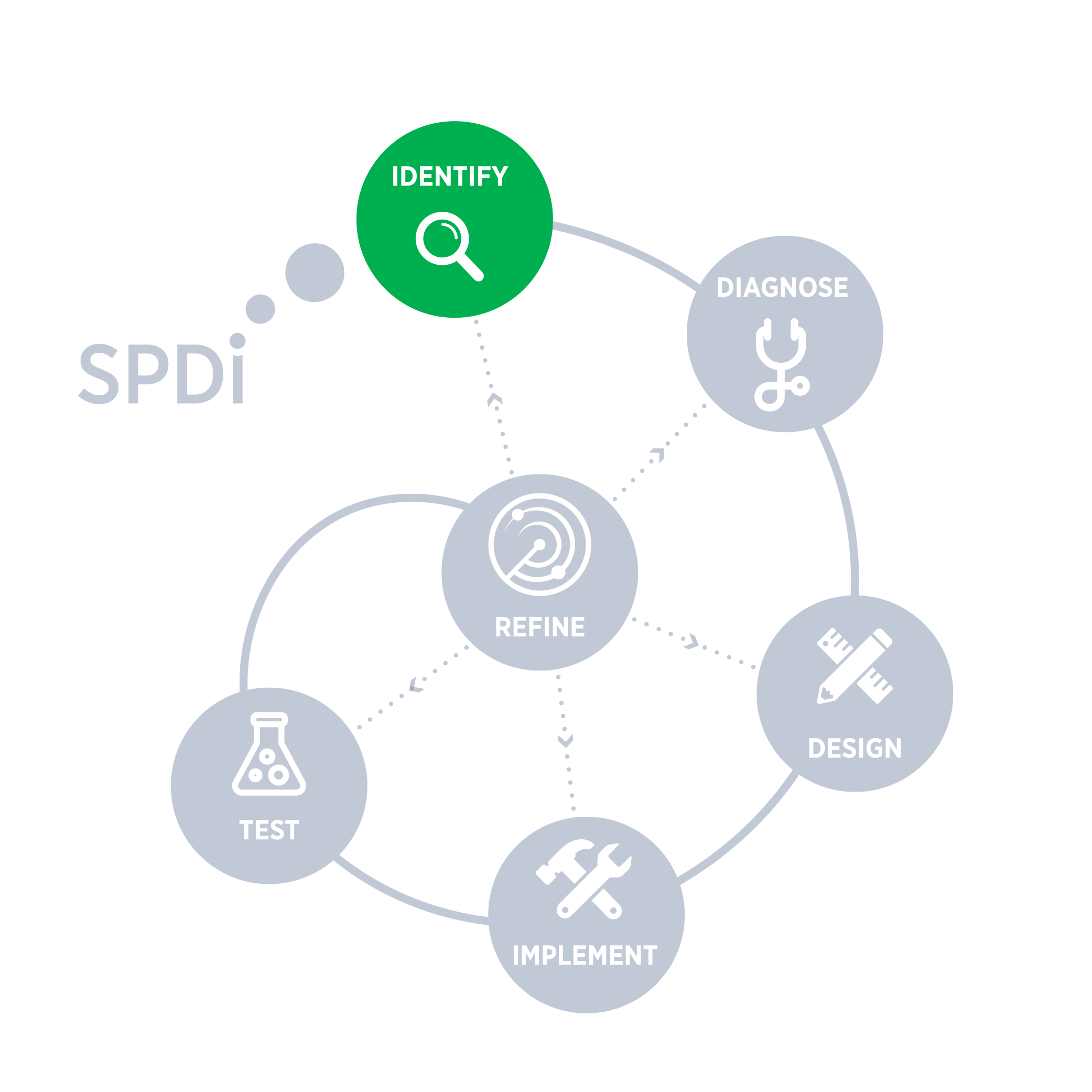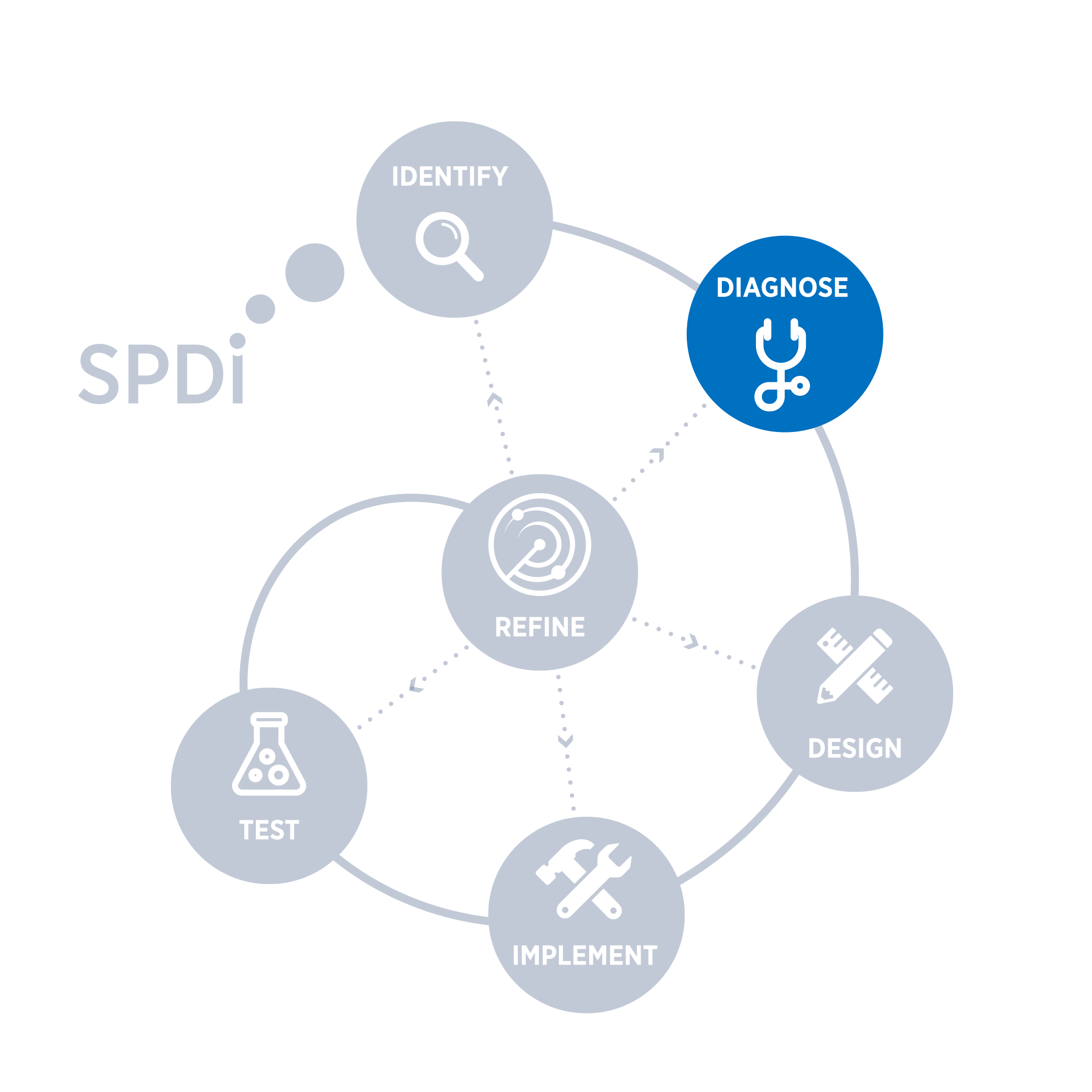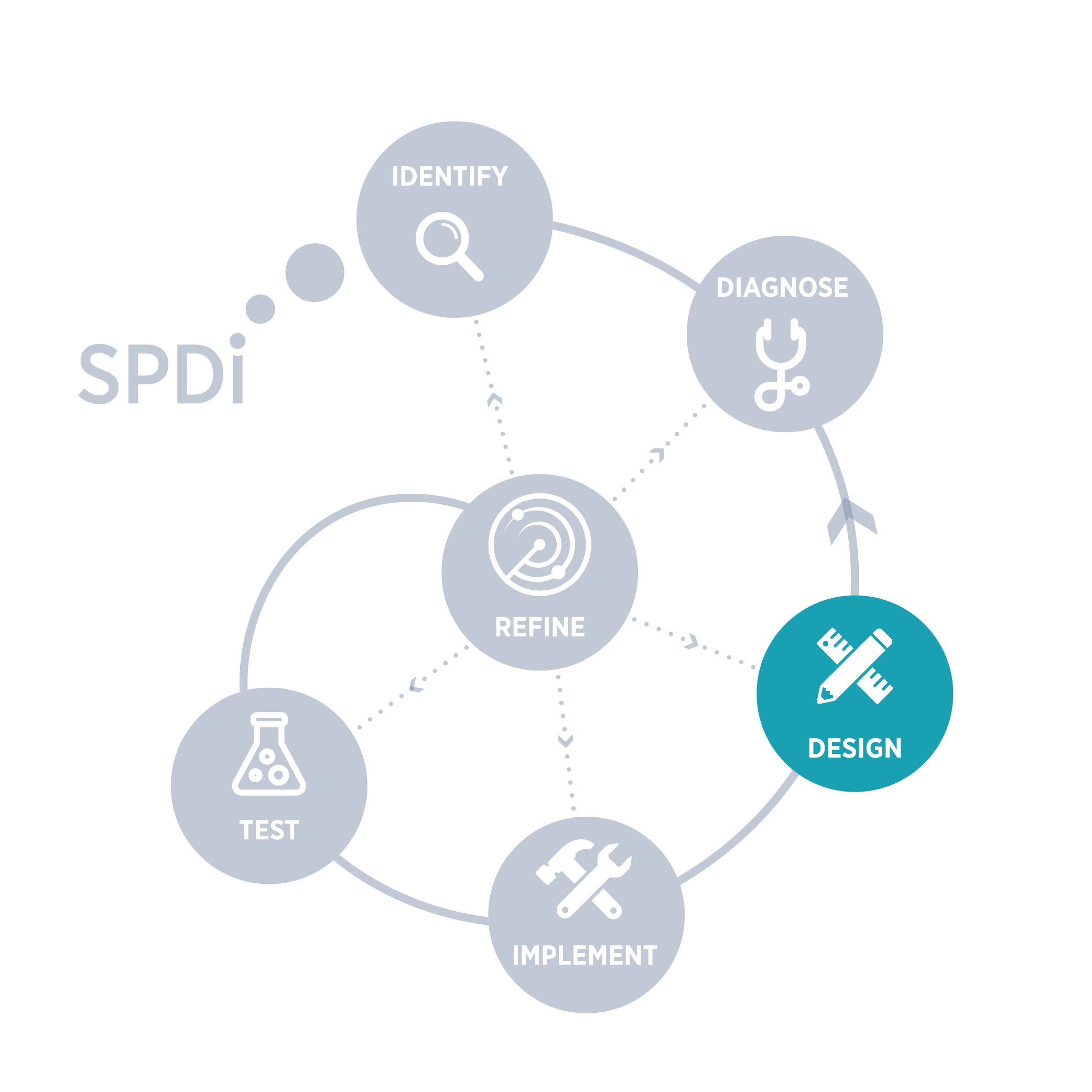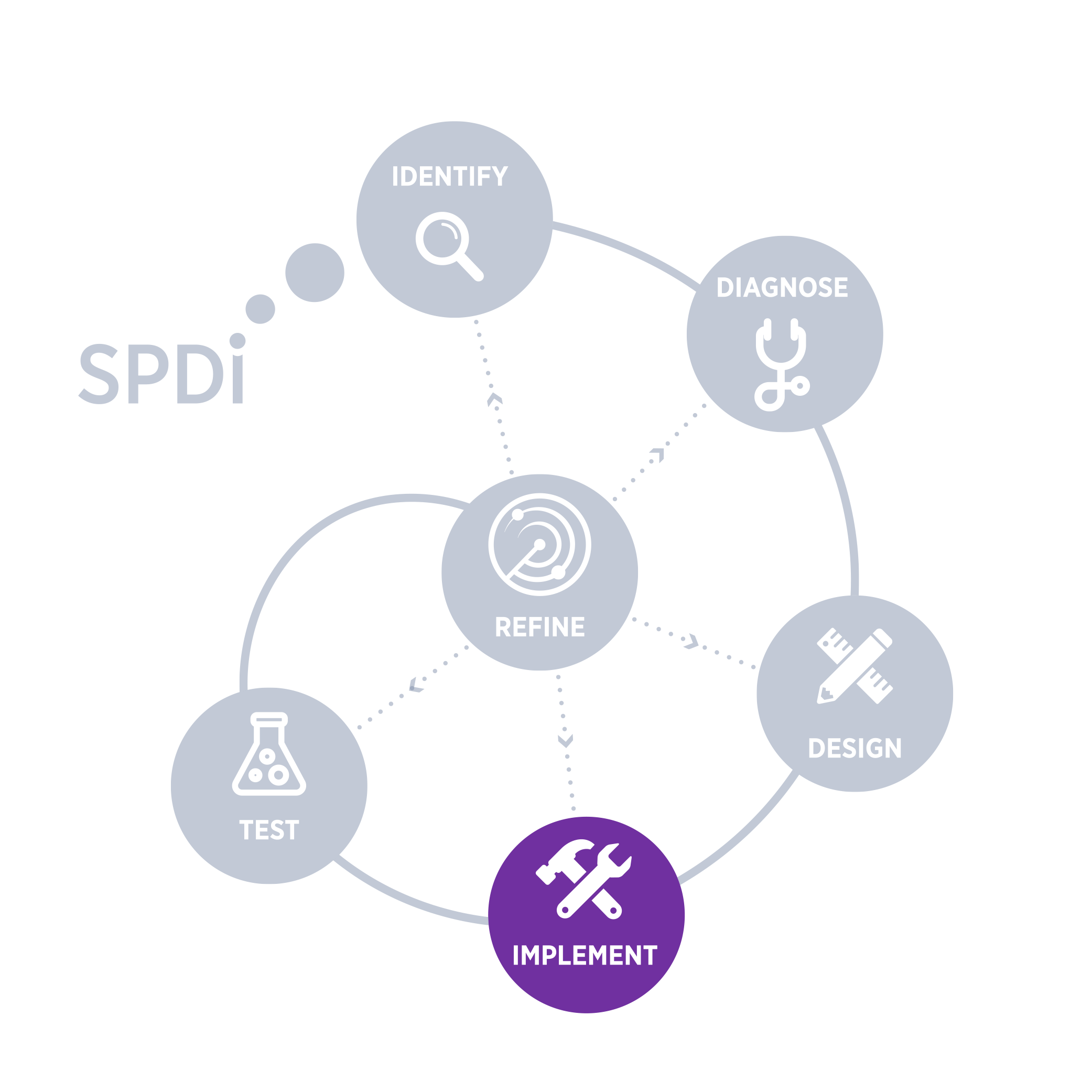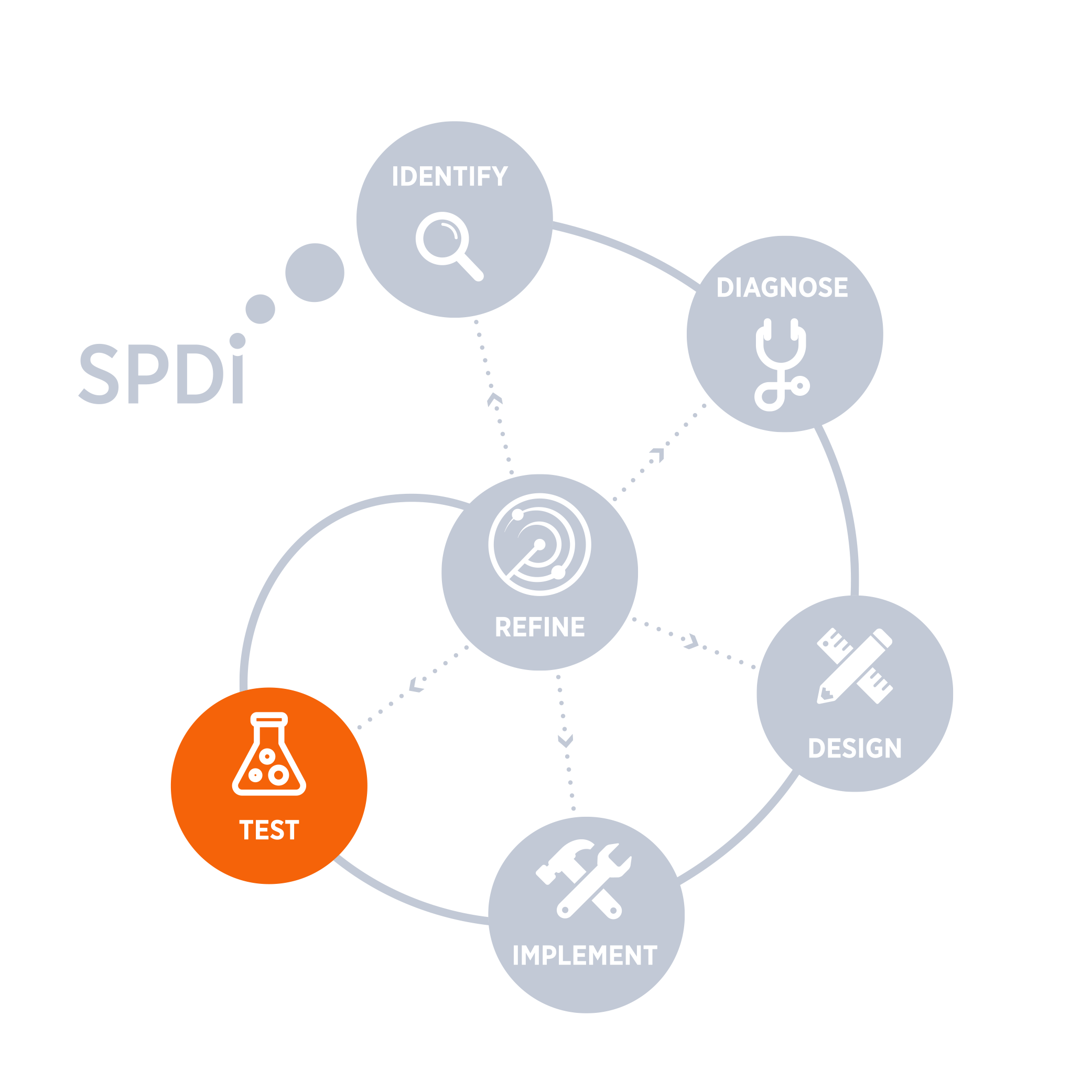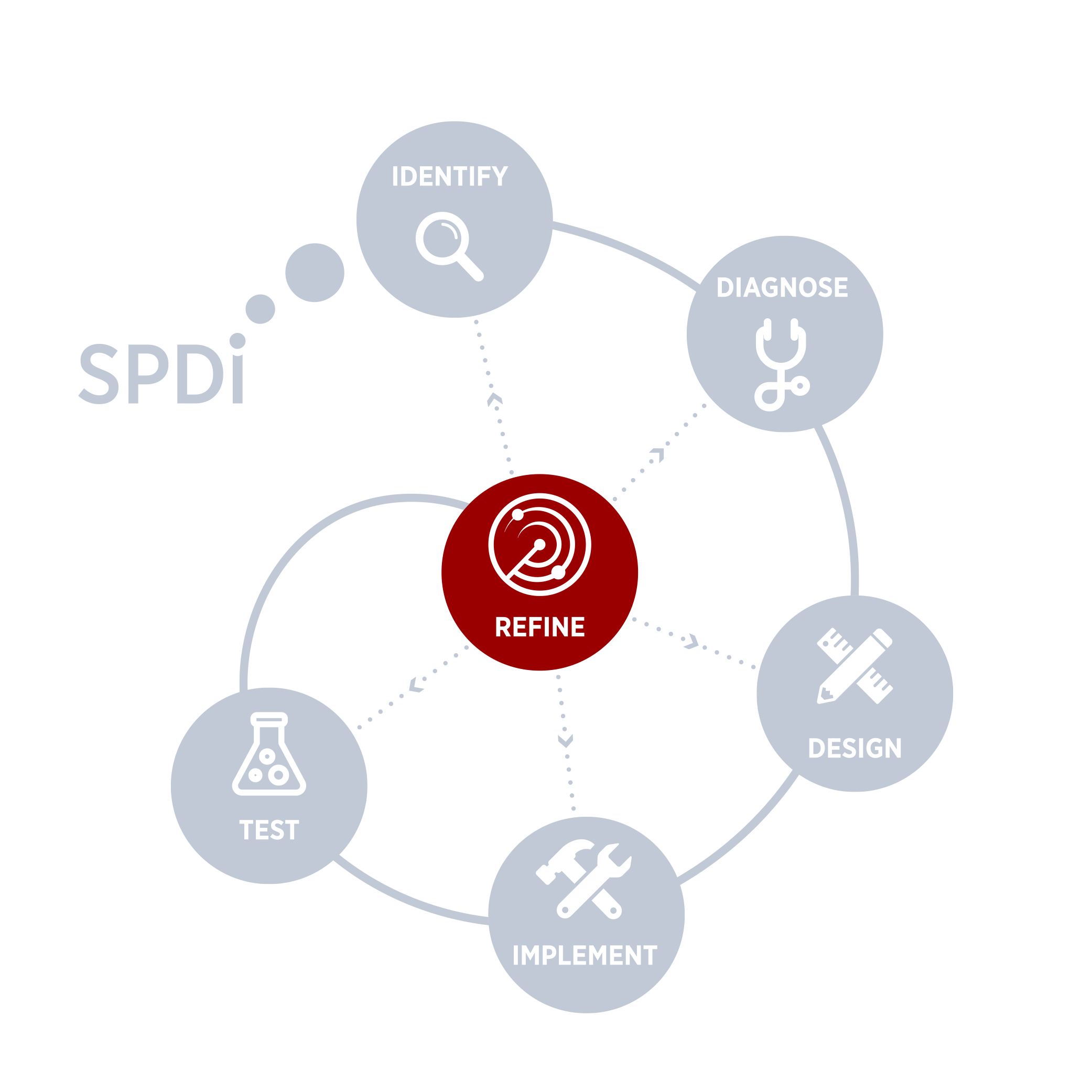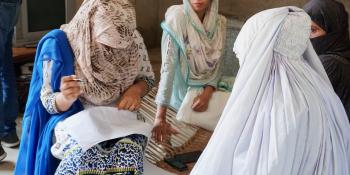Policy is a process, not a product.
With each development success comes a new wave of challenges. Great strides have been made toward getting all children enrolled in primary school, but the next problem to tackle – getting them to actually learn – is much more complex. Many countries have introduced tough limits on air pollution to protect citizens’ health – but creating the right incentives to achieve actual compliance is difficult.
Addressing these finer policy challenges requires embedded and self-correcting processes that produce and integrate evidence as part of the policy implementation process.
Read below to learn about the SPDI process in more details, examples where SPDI has been successfully implemented in our training and research work, and SPDI success stories that have led to policy change or influence
EPoD’s policy research engagements are guided by the six steps of Smart Policy Design & Implementation:
SPDI In Action
How can education retention be maintained, and even improved, despite a global pandemic?
See the SPDI framework in action, informing the transition from food delivery to vouchers in Indonesia.
PhD student Peter Hickman discusses using EPoD's SPDI framework in Exec Ed teaching.
See the SPDI framework in action through the vocational skills training programs in Punjab, Pakistan.
See the SPDI framework in action through the improvement of direct cash transfer programs in Indonesia.
Leading Smart Policy Design is an executive program for leaders creating policies addressing complex problems worldwide.
SPDI Success Stories
Technology and Local State Capacity in Ghana
EPoD affiliate Anders Jensen and co-authors conducted research analyzing the association between technology use and property tax billing, collection and enforcement by local governments in Ghana. The project randomized the use of a new revenue collection technology and found that investments in technology alleviate information constraints and improve the progressivity of the tax system (making it more likely that people with high income-assets pay property taxes), thereby increasing tax collection. The team presented their findings to the Ministry of Finance and to the Vice-President’s Office, who has since officially encouraged all local governments to adopt technology for property tax collection purposes. Additionally, the local institution with whom the researchers were collaborating was invited to join the effort of setting up an electronic procurement platform that would enable scaling technology to the country’s 256 local governments.
Enhancing Education Quality in Pakistan
The LEAPS team launched a large-scale post-COVID Targeted Instruction Intervention in 1,500 public schools in Pakistan, in partnership with the Federal Ministry of Education and the Khyber Pakhtunkhwa (KP) Provincial Education Department. The program is designed to address student learning gaps, exacerbated by COVID-19 induced school closures, and help students catch up grade levels by building foundational skills in language and math. The program introduces a remedial curriculum and associated pedagogy targeted at students’ current learning levels, implemented by existing public school teachers with the help of an easy-to-use technology tool. The technology is designed to take the administrative burden of targeted instruction off teachers, automating processes like sorting children according to learning levels, analyzing test score data, and recommending what to teach next.
The Targeted Instruction Program (TIP) was piloted with 16 NGO-run schools serving approximately 3,000 children, before being taken to 1,250 public schools in KP and around 250 federally administered public schools, impacting over 300,000 children. Thus far, over 6,000 public school teachers, head teachers and education officials have been trained in how to implement the program, including the curriculum, pedagogy, and technology use. If successful, the government has expressed interest in scaling up the program to over 32,000 schools in KP with a projected impact on over 4 million children, as well as to other provinces in the country.
This is a significant achievement: as policymakers searched for viable responses to an education emergency brought on by the global pandemic, LEAPS used intensive policy engagement and relationship-building to seize the opportunity created by this favorable policy environment and launch TIP. While the team anticipates that the results of this intervention will inform further policy action in Pakistan, they also hope their findings will be relevant and insightful for the entire global education community.
Rebuilding the Social Compact: Understanding Service Delivery and Property Taxes in Pakistan
Asim Khwaja and co-PIs are collaborating with the Government of Punjab to evaluate a series of reforms that enables taxpayers to better and more credibly express preferences for local urban services and strengthens the link between these services with the taxes they pay. The objective is to improve tax collection rates and strengthen citizen faith in the government’s ability to deliver services. The impact evaluation has led to the expanded role of employees at the Excise, Taxation & Narcotics Control (ET&NC) Department of the Punjab Government from tax collectors to liaisons between citizens and the state. Beyond simply collecting taxes, they now elicit taxpayer preferences for services and inform them about the tax-service link to encourage voluntary tax compliance. This has generated considerable excitement in the government. These reforms offer the possibility of reframing a conventionally transactional engagement into a long-term, sustainable relationship based on mutual respect and voluntary compliance.
Evaluating Social Protection Programming in Indonesia
J-PAL Southeast Asia and EPoD are evaluating the program effects on labor, consumption smoothing, and financial behaviors of a vocational training and cash transfer program to inform future program delivery. The program, Kartu Prakerja, is a novel governmental program run by Manajemen Pelaksana Program Kartu Prakerja (PMO) that combines vocational training with cash transfers to develop work skills, promote employment, sustain families, and promote digital financial inclusion. Launched in early 2020, it is a key component of Indonesia’s social protection policy, with millions already enrolled. In order to help inform program implementation in 2022, the team presented their preliminary findings of the impact evaluation to government officials and outside researchers, and then on a public webinar hosted by the PMO. The executive summary of the research findings is also posted on the PMO’s website.
Informing Transition from Food Delivery to Food Vouchers in Indonesia
J-PAL Southeast Asia and EPoD researchers evaluated the transition of the largest social assistance program in Indonesia providing subsidized food to the poor, from in-kind delivery of rice to electronic food voucher distribution, studying program effectiveness and also relative delivery costs. After conducting a randomized impact evaluation, the results were presented to the Government of Indonesia and at a public webinar hosted by J-PAL SEA. Throughout 2021, the Indonesia’s e-voucher program for food assistance formed a key part of Indonesia’s social safety net during the COVID-19 pandemic.







